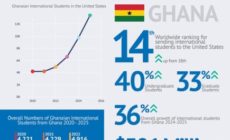23,000 Workers in public sector earn over GHS10,000 – Deputy Minister of Finance
- Posted on
- Comment
 A Deputy Minister of Finance Abena Osei Asare, has disclosed that 23,000 workers in the public sector earning over GHS10,000 will be affected by government’s introduction of the 35% income tax.
A Deputy Minister of Finance Abena Osei Asare, has disclosed that 23,000 workers in the public sector earning over GHS10,000 will be affected by government’s introduction of the 35% income tax.
As part of the Mid-Year Budget Review the Finance Minister, Ken Ofori Atta, intimidated government’s decision to introduce new taxes to boost domestic revenue.
Speaking on Citi TV’s Breakfast Daily Show, Madam relayed that the new tax is focused on taxing high income earners to raise, instead of burdening the poor with more taxes.
“Now the government is saying that anyone who earns above GHS10,000 it would apply a tax of 35 percent. We did the background checks and realized that in the public sector alone you can have about 23,000 in that bracket on whom you can apply the new tax,” she said.
“This will help us achieve some revenue to close the revenue gap. This time, we are not passing it on to the poor, we believe that those who are way up of the revenue ladder should do more to help those further down the revenue ladder,” she added.
Meanwhile Abena Osei Asare explained that the effect of the new 35 percent tax on salaries above 10,000 Ghana Cedis will have minimal impact.
This, she explains is because the 35 percent will not be charged on the initial GHS10,000, but rather on the extra amount people earn on the GHS10,000.
In justifying some of the new tax measure, Abena Osei Asare stated that government was determined to raise enough revenue and control its expenditure to avoid missing its end of year fiscal deficit target.
“The income tax charges are in bands, with various salary levels attracting specific tax rates. So what we are doing is that we are introducing a new income tax bracket.
So if you earn 10,000 and above for example 12,000, after making all the deductions based on the current income tax regime on the first 10,000, the 35% tax will now be charged on the extra 2,000.”
-citinews










 (Selorm) |
(Selorm) |  (Nana Kwesi)
(Nana Kwesi)